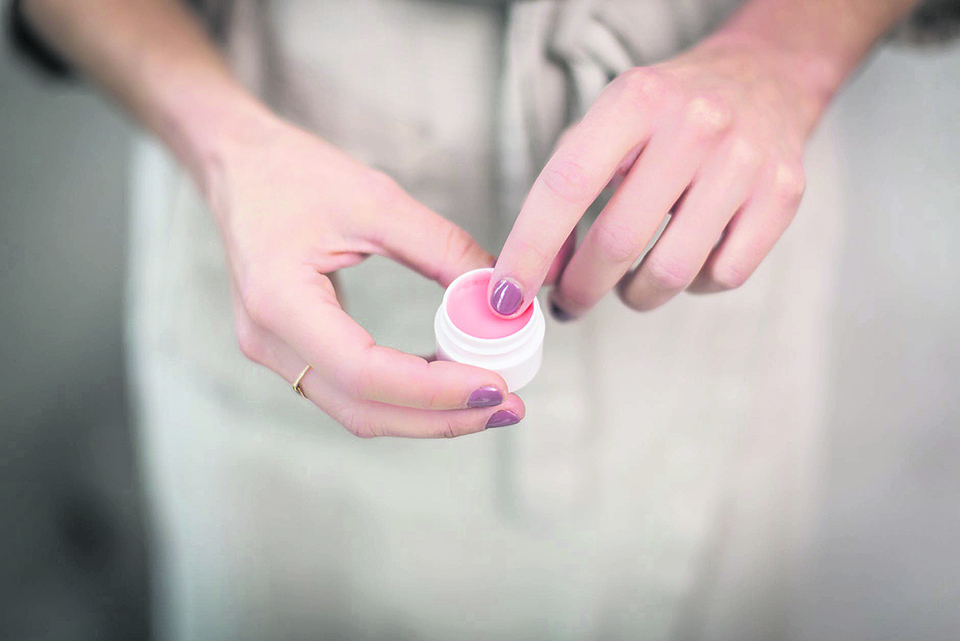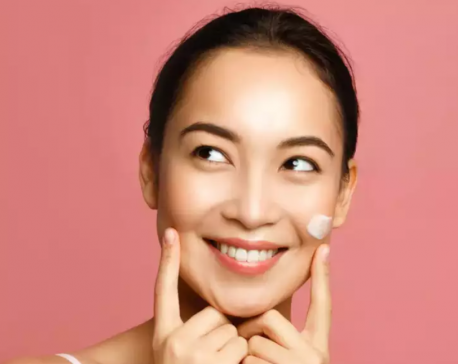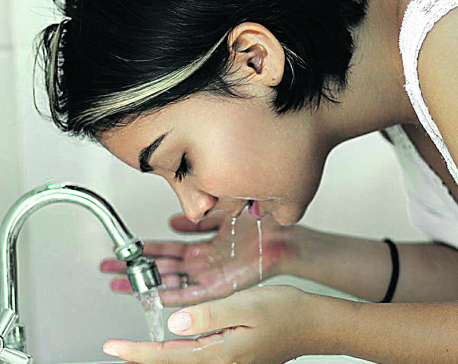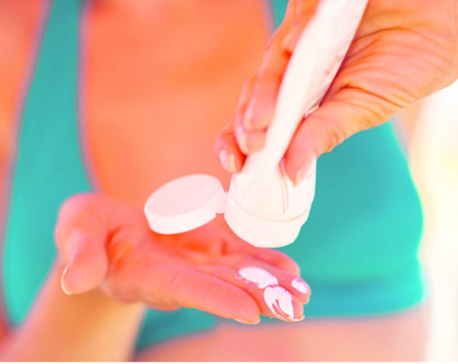
OR

We are all guilty of buying a lot of skincare products like moisturizers and sunscreen lotions without checking the labels. But there are a lot of ingredients in many of the creams and lotions that we buy that we shouldn’t be putting on our skin at all. Here, Dr Binita Raut, dermatologist and chief skin consultant at Himalayan Skincare Clinic, lists out some chemical ingredients you should steer clear of and suggests some alternatives that can help you achieve healthy and glowing skin.
Parabens
Parabens are actually organic compounds that keep products fresh and prevent them from nurturing harmful bacteria, fungi and a bunch of other microorganisms. But since these are powerful compounds, they can pierce the outer layer of your skin and remain in the tissue for years. They are also known to imitate the functions of estrogen that might lead to breast cancer and reproductive issues in the long run. The most common types of parabens used in skincare are butylparaben, methylparaben and propylparaben. So, check the ingredients tag when you buy your next skincare product and try to steer clear of these.
Formaldehyde
Like parabens, formaldehydes are used to prevent the growth of harmful bacteria in skincare products and also to extend their shelf life. It is actually a gas so instead of using formaldehyde, cosmetic products usually incorporate compounds that release this gas which are called allergens and sensitizers. Formaldehyde is actually harmless when it’s used in a low amount and exists in a bunch of things that surrounds us like plants, smoke and food. But when we’re exposed to it in a large amount, it irritates the skin and causes a bunch of skin problems. Most of the current cosmetic products use a lot of formaldehyde releasers that can cause many skin problems. Imidazolidinyl urea, diazolidinyl urea, bronopol, DMDM hydration, sodium hydroxymethylglycinate, 5-bromo-5-nitro-1,3-dioxane and quaternium-15 are the most commonly used formaldehyde releasers that you should avoid.
Sodium Lauryl Sulfate (SLS)
Sodium Lauryl Sulfate (SLS) is largely used in a lot of skincare products because of its surfactant nature and its versatile uses: as an emulsifier, a solvent and a conditioning agent. Its main function is to create bubbles when a product containing it comes in contact with your skin and it cleans out your skin thoroughly. It isn’t essentially a harmful ingredient and almost all organic and natural skincare products contain this ingredient.
SLS comes in seven different grades – the ones in higher grade being the gentler and most harmless ones and the lower ones being more harmful and harsh on your skin. Natural and organic brands mostly use higher graded SLS while other cosmetic brands use lower graded ones as they come cheap. These products are not suitable for sensitive or acne prone skin and can clog skin pores and cause irritation, allergies and, in extreme cases, you might even feel like your skin is burning. The commonly used SLS in skincare products are decyl glucoside, sodium cocoyl isethionate and sodium cocoyl glutamate.
Hydroquinone
Hydroquinone is present in a lot of skin lightening and scar removing products. It’s an aromatic agent that can treat different forms of hyperpigmentation as it bleaches your skin by decreasing the number of melanocytes (cells that form melanin and determines your skin color). Hydroquinone is a harsh chemical that can cause skin allergies and burning. In severe cases, it can cause your skin to crack and lead to oozing blisters to form on your skin. It’s especially not suitable for treating the skin of naturally dark skinned people as it can lead to discoloration. Natural products like antioxidants, plant-based acids, and vitamin B3 are good alternatives to hydroquinone.
Natural skincare solutions
You don’t have to buy expensive creams and formulas to take care of your skin. There are some easily available and relatively cheap ingredients that you can use to cleanse and nourish your skin. Here Dr Raut recommends her top three favorites.
Aloe vera
Aloe vera has many benefits and it’s really simple to use as well. All you have to do is cut an aloe stem and apply the gel on your face or wherever you want to. It can treat sunburn, relieve irritated skin, moisturize your skin, slow skin aging, fade and prevent dark spots, exfoliate your skin and prevent acne. You can mix aloe vera with some lemon juice and apply that on your face with a cotton pad. Leave it for 10 to 15 minutes and then wash off with cold water. You can do this everyday for healthy and glowing skin.
Coconut oil
Coconut oil is a great alternative to cosmetic deodorants and moisturizers. It can actually moisturize your skin far better than any cosmetic moisturizer. If you apply it thoroughly on your skin before going to bed, you will wake up with soft glowing skin. It’s also an antibacterial and can effectively work as a natural substitute for deodorants. Mix two tablespoons of coconut oil with half tablespoon of baking soda (also known for its antifungal, antibacterial, and odor-killing properties) and apply it onto your underarms. You can add a few drops of any aromatic essential oil of your choice if you wish to enhance its fragrance and wash it off after five minutes.
Honey
Honey can treat a lot of skin problems including acne, hyperpigmentation and fungal infections. It moisturizes your skin and can delay the effects of aging as well. Mix equal amount of honey with brown sugar and use it as a scrub or exfoliator and do this once every two to three days. Apply it all over your skin – gently scrubbing your skin – for five minutes and wash it off with cold water. You can also use pure honey as a skin mask. Apply it all over your face, leave it for 10 to 15 minutes and wash it off with cold water.
You May Like This

3 ways to get super soft skin for your Valentine's Day
With a lot of chills the winter air also brings with it flaky and dry skin. And that is not... Read More...

Skincare basics you often get wrong
Everyone seems to have their own routine or set of steps that they think works for them when it comes... Read More...

The basics of skin care
We all want good skin but to have it requires some basic knowledge about skin care. And we aren’t just... Read More...




Just In
- Sunkoshi-Marin Diversion Project’s tunnel construction nears completion, breakthrough scheduled for May 8
- Govt tightens security arrangement for Third Investment Summit 2024
- Pesticide residue found in vegetables in Nepalgunj
- Aam Janata Party and Samajwadi Jana Ekata Party merge
- 1,600 participants confirmed for Nepal Investment Summit
- Ilam-2 by-elections held peacefully, vote count likely to start tonight
- NEA schedules five-day power cut across Kathmandu Valley for underground cable installation
- Hundreds of passengers including foreign tourists in distress as poor visibility halts flights to and from PRIA







-1200x560-wm_20240427144118.jpg)





Leave A Comment